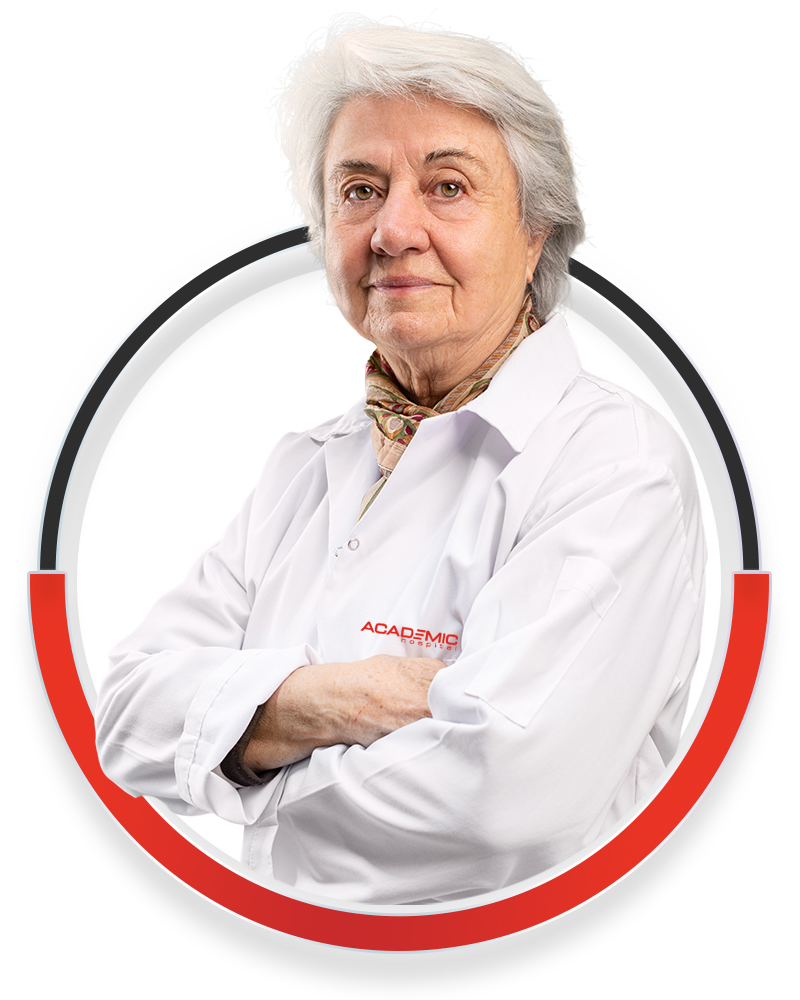What is nephrology?
The kidney is an organ located on both sides of the spine, near the middle of the back, and plays an extremely important role in the healthy functioning of the body. Problems in the kidneys can have life-threatening risks if left untreated. Nephrology is a science that provides diagnosis and treatment by investigating the causes of kidney failure, electrolyte disorders, and urinary abnormalities.
What are kidney diseases and kidney-related diseases?
Glomerulonephritis or vasculitides develop due to inflammation and disorders in the immune system of the body, disrupt the functioning of the kidney, and cause the formation of chronic kidney disease. The loss of function, slowdown, or damage of the kidneys is the main field of the Nephrology Department. However, the diseases that constitute the area of interest of the Nephrology department are:
- To regulate the blood pressure of high blood pressure (hypertension) patients,
- To investigate the damage of various diseases (heart, blood pressure, diabetes, etc.) and the medications used in the treatment of these diseases to the kidney,
- Eliminating electrolyte (sodium, potassium, calcium, phosphorus, etc.) and water disorders,
- To evaluate kidney transplantation or dialysis options according to the patient's condition in order to eliminate the problem of kidney failure,
- Developing treatment methods to eliminate this problem in cases of bleeding or protein leakage in the urine,
- To apply the necessary treatment for urinary tract infections,
- To diagnose and treat kidney stones or cysts
Academic Hospital Department of Nephrology
Academic Hospital's Nephrology Department plays a role in the diagnosis, treatment, and follow-up of kidney diseases such as normal kidney functions, hypertension, kidney failure, and protein leakage in the urine in adults. In the Department of Nephrology, all tests and follow-up processes for treatments such as kidney failure, dialysis (haemodialysis or peritoneal dialysis), and kidney transplantation are handled.
Academic Hospital's Paediatric Nephrology Department
Our expert and experienced team provides services to children and their families in the treatment of kidney and urinary tract diseases that occur in childhood. The Department of Paediatric Nephrology treats all kinds of congenital or acquired problems in the urinary system (kidneys, urinary tract, bladder, and urethra) in children between the ages of 0 and 18, in cooperation with other medical units and with a multidisciplinary approach.
Transfer and Dialysis Procedures at the Academic Hospital
In an adult-oriented Nephrology Department, supportive treatment is applied to prevent the kidneys that have lost their function from posing a life-threatening risk to the patient. Dialysis is the process of removing excess fluid and waste from the body when the kidneys are not fully functional. Dialysis treatment is applied in two ways: 1. hemodialyzation and 2. peritoneal dialysis. Kidney transplantation is also performed when the kidneys can no longer function at all, even with dialysis.
Peritoneal dialysis (also called abdominal dialysis):
In order to clean the blood from harmful wastes, the patient's own peritoneal membrane (peritoneal membrane) can also be used instead of a filter, and this practice is called peritoneal dialysis. In this practice, a tube called a peritoneal catheter that contains dialysis fluids is placed in the abdominal cavity of the person, and the fluid is given to the patient through the abdomen through this tube. This process takes between 30 and 45 minutes, and it can be applied by the patient himself, but only under sterile conditions.
Haemodialysis (Vascular Dialysis):
The process of cleaning the blood outside the body through a machine and a semi-permeable membrane and returning it to the body is called hemodialysis. This treatment method requires high blood flow and is planned according to the general condition of the patient and monthly blood tests.
Kidney transplant treatments:
Kidney transplantation is the process of placing a healthy organ that can perform the lost functions in the bodies of patients with end-stage renal failure. The kidney required for transplantation can be provided either by a deceased donor or by a living donor.
Common kidney diseases
The kidneys are in charge of eliminating waste, regulating blood pressure, synthesizing blood-forming hormones and vitamin D, and regulating water, electrolytes, and acid balance. In some cases, the kidneys might not be able to perform these functions for a variety of reasons. Some of the common kidney diseases are:
Chronic Kidney Failure:
Chronic kidney failure is the most common kidney disease, and it happens when kidney tissues are damaged and cannot fully function due to long-term health problems, especially diabetes and hypertension.
Acute kidney failure:
It occurs when the kidneys suddenly lose their filtering ability. So when the kidneys cannot get rid of blood wastes, dangerous levels of waste may accumulate and the blood's chemical makeup may get out of balance.
Kidney stone:
The accumulation of various minerals in the tissues by condensation over time is called a kidney stone. Kidney stones are an important health problem. They can lead to urinary tract infections, and if not treated, they can cause blockage in the tissues and cause kidney failure.
Polycystic kidney disease:
Polycystic kidney disease is a condition that occurs with the development of numerous cysts in the kidney tissue and can lead to disruptions in kidney functions. Different problems such as hypertension, bloody urine, and increased kidney size may occur in polycystic kidneys.
Urinary tract infections:
Urinary tract infections occur when the tissues in the urinary tract are infected by factors such as bacteria, viruses, or fungus.
Glomerulonephritis:
It is the name of the disease that occurs when the glomeruli (the capillary specialists of the kidneys) are inflamed as a result of various mechanisms. In general, it can cause body oedema, hypertension, protein loss in the urine, bloody urine, and intravascular coagulation.







